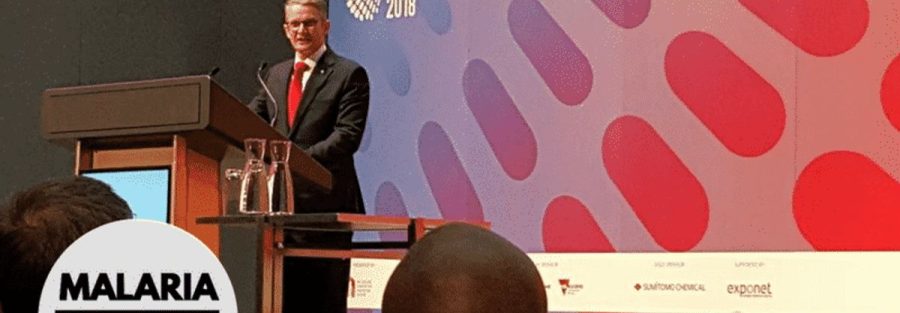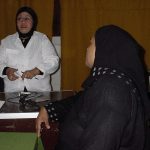World Malaria Day, observed annually on April 25th, serves as a crucial reminder of the global effort required to combat malaria, a disease that continues to have a profound impact on millions of lives around the world. This day is dedicated to raising awareness, mobilizing resources, and reinforcing the commitment to ending malaria. The 2024 theme ‘Accelerating the fight against malaria for a more equitable world’ emphasizes the need for equitable access to prevention and treatment, and recognizes the importance of addressing health disparities influenced by gender, equity, and human rights.
Key Takeaways
- World Malaria Day highlights the importance of raising awareness, educating communities, and mobilizing resources to combat malaria.
- The evolution from Africa Malaria Day to World Malaria Day in 2008 reflects a growing international commitment to tackle the disease.
- The 2024 theme underscores the urgency to address inequalities in malaria prevention and treatment, aligning with broader health and human rights goals.
- Advancements in antimalarial treatments coexist with challenges like health disparities and the need for sustained political commitment for eradication efforts.
- Engagement from the global community, including international partnerships and individual contributions, is vital for the successful eradication of malaria.
Understanding the Significance of World Malaria Day

Raising Awareness and Educating Communities
World Malaria Day, observed annually on April 25, plays a pivotal role in raising awareness about malaria and its impact on communities around the globe. It is a day dedicated to educating the public on the dangers of malaria, the importance of prevention, and the need for timely treatment.
Community engagement is the cornerstone of any successful malaria control program. By informing individuals about the symptoms and prevention of malaria, and the critical need to seek treatment promptly, we empower communities to take charge of their health. This collective effort is essential for reversing alarming malaria statistics and achieving the Sustainable Development Goals.
Let us "Accelerate the fight against malaria for a more equitable world" by ending discrimination, engaging communities, and ensuring healthcare is accessible to all.
The following points highlight the importance of community involvement in the fight against malaria:
- Encouraging local advocacy and global leadership to take action
- Promoting gender-responsive and culturally-sensitive interventions
- Integrating malaria control within universal health coverage
- Focusing on primary healthcare to bring services closer to people
By uniting our voices and actions, we can make significant strides towards a malaria-free world.
Mobilizing Resources for Malaria Control
Mobilizing resources is a critical component in the fight against malaria. Central to any effective malaria control strategy is community engagement and awareness. Dr. Susanta Kumar Ghosh highlighted the importance of informational campaigns to educate vulnerable populations about malaria symptoms, prevention methods, and the importance of seeking timely treatment. By fostering community participation and collaboration with local authorities, we can enhance the impact of control activities and work towards the Sustainable Development Goal of ending the malaria epidemic.
Optimizing the impact of malaria control efforts requires a multifaceted approach. This includes not only the development of new tools that benefit all people at risk of the disease but also ensuring that these interventions are gender-responsive and culturally-sensitive.
The World Health Organization and partners advocate for stepping up investment in research and development of new tools. These efforts are especially crucial for the poorest and most marginalized populations. Innovative strategies, such as reducing mosquito entry or community-based environmental management to eliminate breeding sites, can enhance the effectiveness of malaria control efforts. Understanding the factors that increase malaria risk is essential for designing comprehensive control strategies.
Let us "Accelerate the fight against malaria for a more equitable world" by engaging communities in health decision-making, bringing healthcare close to where people live and work through primary health care, and including malaria control interventions in universal health coverage.
World Malaria Day 2024: A Call for Equitable Health Access
As we approach World Malaria Day 2024, the global health community is rallying around the theme ‘Accelerating the fight against malaria for a more equitable world.’ This theme echoes the sentiments of World Health Day, emphasizing the critical need to bridge the gap in access to malaria-related health services.
Equity in health implies that everyone has the opportunity to attain their full health potential. On World Malaria Day, we are reminded that no one should be disadvantaged from achieving this potential, especially when it comes to combating malaria.
The focus on equity is not just a moral imperative but also a strategic one. Addressing disparities in malaria prevention and treatment can lead to more effective control and eventual eradication of the disease. The following points highlight the areas that require urgent attention:
- Ensuring equal access to preventive measures such as bed nets and indoor residual spraying.
- Providing equitable distribution of diagnostic tools and antimalarial medications.
- Strengthening health systems to reach the most vulnerable, including women and children.
- Fostering community engagement to tailor malaria interventions to local needs.
By concentrating on these areas, we can make strides towards a world where health equity is a reality, not just an aspiration.
The Evolution of World Malaria Day

From Africa Malaria Day to a Global Observance
The transition from Africa Malaria Day to World Malaria Day marked a significant shift in the global health community’s approach to combating malaria. Initially established in 2001 to recognize the efforts of African governments, the observance was expanded in 2008 at the 60th session of the World Health Assembly. The decision underscored the need for a unified global effort to raise awareness and implement preventive measures against malaria.
The global observance of World Malaria Day on April 25th serves as a reminder of the ongoing battle against this disease and the importance of international cooperation. It is a day when stakeholders from various regions come together to share progress and reinforce commitments to malaria control.
The broadened scope of World Malaria Day has been instrumental in bringing together diverse regions and policy areas, from cyber security to ethics, under the common goal of eradicating malaria.
The day is not only about reflection but also about action, as it mobilizes resources and galvanizes support from governments, organizations, and individuals dedicated to the cause of malaria elimination.
The Role of the World Health Organization
The World Health Organization (WHO) plays a pivotal role in the global fight against malaria. As a leader in public health, WHO sets the standards for malaria control and elimination, providing guidelines and strategies that countries can adapt and implement. The organization’s commitment to overcoming malaria is evident in its comprehensive approach, which includes supporting research, disseminating data, and mobilizing resources.
- WHO’s efforts are multifaceted, encompassing:
- Development of global strategies and policies.
- Provision of technical support to member states.
- Coordination of international efforts and partnerships.
- Monitoring and evaluation of malaria trends and responses.
The WHO’s campaign page for World Malaria Day underscores the importance of addressing health equity, gender equality, and human rights in the fight against malaria. It emphasizes concrete measures to overcome barriers and achieve a more equitable world.
The organization’s data and reporting tools, such as the Global Health Observatory and World Health Statistics, are crucial for tracking progress and identifying areas that require more attention. These resources enable policymakers, researchers, and healthcare providers to make informed decisions and strategize more effectively.
Themes and Messages Over the Years
World Malaria Day has evolved to encapsulate a variety of themes and messages, each aiming to highlight different facets of the malaria challenge and to inspire action across the globe. The themes serve as a rallying call, focusing on aspects such as the importance of universal health coverage, the need for increased research and innovation, and the critical role of planning, monitoring, and evaluation in the fight against malaria.
- 2020: "Zero Malaria – Draw the Line Against Malaria"
- 2021: "Reaching the Zero Malaria Target"
- 2022: "Harnessing Innovation to Reduce the Malaria Disease Burden and Save Lives"
- 2023: "Advance Equity, Build Resilience, End Malaria"
- 2024: "Accelerating the fight against malaria for a more equitable world"
The annual themes are not just slogans but are deeply connected to the strategic goals set by global health organizations. They reflect the dynamic nature of the global health landscape and the adaptability required to address the ever-changing challenges posed by malaria.
World Malaria Day 2024: Accelerating the Fight

The 2024 Theme: Gender, Equity, and Human Rights
The theme for World Malaria Day 2024, "Health Equity, Gender and Human Rights", underscores the commitment to addressing the disproportionate impact of malaria on vulnerable populations. This focus highlights the need for inclusive health strategies that prioritize the rights and well-being of those most at risk, such as pregnant women and marginalized communities.
The goal of this year’s theme is not only to combat the disease but also to champion the dignity and rights of every individual to access health services without financial hardship.
Malaria’s burden on women and girls is particularly significant, as they often serve as caregivers, healthcare workers, and patients. The theme calls for a concerted effort to break down barriers and advocate for the vulnerable, ensuring that the fight against malaria also advances gender equity and upholds human rights.
- Slogan: Accelerating the Fight Against Malaria for a More Equitable World
- The theme emphasizes collective action and inclusivity.
- It aims to address the challenges posed by climate change and access to health services.
Spotlight on Health Disparities and Malaria
The fight against malaria is not only a medical challenge but also a matter of social justice. Health inequities are a significant barrier to malaria control, particularly in high burden countries. Through the High burden to high impact (HBHI) approach, efforts are being made to reach those suffering the most with tailored interventions.
In low burden settings, the disease often affects vulnerable groups such as migrants, refugees, and indigenous communities. These populations are frequently overlooked, lacking access to essential services and information for malaria prevention and treatment.
The right to quality, timely, and affordable malaria services is universal, yet achieving this standard is a complex task that requires addressing the underlying factors contributing to health disparities.
The systematic review of at-risk communities for zoonotic malaria highlights the importance of both traditional and non-traditional prevention measures. The use of Insecticide-Treated Nets (ITNs) and Long-Lasting Insecticidal Nets (LLINs) is crucial, as cited in several studies.
Messages from Global Health Leaders
In the lead-up to World Malaria Day, global health leaders are vocalizing the urgency of the malaria crisis and the need for intensified action. The WHO Global Malaria Programme’s new operational strategy for 2024-2030 is a testament to the proactive steps being taken to combat this disease. This comprehensive plan emphasizes the importance of equitable health access and the integration of gender and human rights into malaria responses.
The global health community is called upon to double down on efforts to ensure that everyone, especially the most vulnerable, can access malaria prevention, diagnosis, and treatment services.
Aminah Alhamdu from Target Malaria highlights the need for resilience and unity in the fight against malaria, urging the global community to come together to end malaria in our lifetime. The WHO echoes this sentiment, stressing the need to address health equity, gender equality, and human rights barriers in malaria strategies.
Advancements and Challenges in Malaria Prevention

Innovations in Antimalarial Treatments
The landscape of antimalarial treatments is witnessing significant advancements, with research and development efforts focusing on overcoming drug resistance and improving efficacy. Next generation chemiluminescent probes are a promising area, offering the potential for ultra-sensitive detection of malaria parasites, which is crucial for both treatment and research.
In response to the challenges posed by different malaria strains, such as P. vivax, tailored strategies are being developed. These include the creation of antimalarial drug toolkits and the implementation of seasonal malaria chemoprevention programs. Such innovations are not only enhancing treatment protocols but also facilitating better control and prevention measures.
The dominance of P. vivax in certain regions necessitates a nuanced approach to antimalarial treatment, underscoring the importance of regional collaboration and surveillance.
With the goal of malaria elimination by 2030, initiatives are increasingly focusing on strengthening control services and surveillance systems. The development of new antimalarial drugs and the refinement of existing ones are central to these efforts, ensuring that the tools to fight malaria remain effective and accessible.
Barriers to Malaria Elimination Efforts
Despite significant progress in the fight against malaria, numerous barriers hinder the path to elimination of this disease. Inadequate knowledge and inaccessibility of prevention methods are major obstacles, often leaving communities vulnerable to the disease. Allergic reactions to certain interventions can also deter their use, complicating comprehensive prevention strategies.
Efforts to reduce malaria have recently stagnated, with public health and community inequalities exacerbating the situation. The right to quality, timely, and affordable malaria services is not a reality for all, creating a cycle of inequity that affects the most vulnerable populations. This includes mobile and migrant workers, refugees, and indigenous communities who often face the highest risk.
By addressing these barriers to prevention and treatment, enhancing surveillance efforts, and engaging communities, we can make significant strides towards malaria elimination.
The National Strategic Plan: Malaria Elimination 2023-27 emphasizes strengthening surveillance and action, particularly in outreach areas. However, the persistence of malaria parasites remains a challenge to achieving the goal of malaria elimination by 2030, as outlined in the National Framework for Malaria Elimination.
The Importance of Sustained Political Commitment
The fight against malaria requires not only medical solutions but also a strong political will. It is essential for political leaders to prioritize malaria control within their agendas to ensure the allocation of adequate resources and the implementation of effective policies.
- In Sudan, the adoption of the HBHI approach, which emphasizes a strong commitment to prioritize malaria, has been a significant step forward.
- Ministers have pledged to address the malaria challenge sustainably and equitably, recognizing the need to overcome barriers such as access to health services and financial constraints within households.
Central to any effective malaria control strategy is community engagement and awareness. By fostering community participation and collaboration with local authorities, we can enhance the impact of control activities.
The resilience and perseverance of health workers, policymakers, and communities are crucial in this enduring battle. Their dedication is the backbone of progress in malaria control, especially for marginalized and hard-to-reach populations.
Engaging the Global Community in Malaria Eradication

World Health Organization’s Campaign Initiatives
The World Health Organization (WHO) plays a pivotal role in the global fight against malaria, particularly through its targeted campaign initiatives. On World Malaria Day, WHO emphasizes the need to overcome barriers to health equity, gender equality, and human rights in malaria responses. This call to action is a cornerstone of their strategy to ensure that everyone, irrespective of socio-economic status or location, has access to essential malaria prevention and treatment services.
By harnessing digital technology, WHO aims to better understand diverse health needs, enabling more effective data collection and analysis to inform malaria response strategies.
The WHO’s campaign for World Malaria Day 2024 focuses on several key areas:
- Ensuring universal health coverage
- Fostering research and innovation
- Enhancing planning, monitoring, and evaluation
Additionally, the organization stresses the importance of accountability and governance in the fight against malaria, as reflected in their theme for the year: "Accelerating the fight against malaria for a more equitable world." The campaign encourages actions such as ending discrimination, engaging communities, integrating malaria control into primary healthcare, and addressing risk factors to reduce the incidence of malaria.
Collaborative Efforts and International Partnerships
The fight against malaria has seen significant advancements through collaborative efforts and international partnerships. These alliances are crucial for sharing knowledge, resources, and best practices across borders. For instance, the partnership between the World Health Organization (WHO) and the RBM Partnership to End Malaria has been instrumental in the ‘High burden to high impact‘ (HBHI) initiative, which focuses on countries with a high malaria burden.
Effective collaboration also involves local and international stakeholders, including governments, NGOs, and the private sector, working together to ensure that interventions are culturally sensitive and reach the most vulnerable populations.
The table below highlights some key partnerships and their contributions to malaria control:
| Partner | Contribution |
|---|---|
| WHO | Policy guidance, technical support |
| RBM Partnership | Advocacy, resource mobilization |
| MMV | Research and development |
| National malaria programmes | Implementation, local outreach |
How Individuals Can Contribute to the Cause
The fight against malaria is not just a task for governments and health organizations; it requires the active participation of individuals around the world. By taking simple, informed actions, each person can play a significant role in reducing the spread of malaria.
- Educate yourself and others about malaria prevention and symptoms.
- Advocate for malaria control within your community.
- Support organizations working towards malaria eradication through donations or volunteering.
Engaging in community-based activities and promoting the use of preventive measures, such as long-lasting insecticidal nets and indoor residual spraying, can significantly contribute to malaria control efforts.
By fostering a sense of responsibility and taking collective action, we can accelerate progress towards a malaria-free world. It’s about more than just fighting a disease; it’s about advocating for the rights and health of all individuals, particularly the marginalized and vulnerable.
Conclusion
As we commemorate World Malaria Day on April 25, 2024, it’s crucial to reflect on the progress made and the challenges that remain in the fight against malaria. This year’s theme, ‘Accelerating the fight against malaria for a more equitable world,’ underscores the importance of health equity, gender equality, and human rights in our efforts to eradicate this disease. It is a day to celebrate the strides taken by international partners, governments, and healthcare workers, while also acknowledging the need for sustained commitment and increased resources. By uniting under this global cause, we can continue to raise awareness, mobilize support, and work towards a future where malaria no longer poses a threat to any community. Let us use this World Malaria Day to reaffirm our dedication to a world free of malaria, and to ensure that no one is left behind in this critical health battle.
Frequently Asked Questions
What is the significance of World Malaria Day?
World Malaria Day is significant because it provides an opportunity to raise awareness about malaria’s causes, symptoms, and prevention, mobilize resources for malaria control and elimination, and encourage early diagnosis and treatment.
When is World Malaria Day observed each year?
World Malaria Day is observed annually on April 25.
How did World Malaria Day evolve from Africa Malaria Day?
Initially celebrated as Africa Malaria Day since 2001, the observance was changed to World Malaria Day in 2008 at the 60th session of the World Health Assembly to increase global awareness and promote preventive measures against malaria.
What is the theme for World Malaria Day 2024?
The theme for World Malaria Day 2024 is ‘Accelerating the fight against malaria for a more equitable world,’ focusing on health equity, gender equality, and human rights in malaria responses.
What are the goals of the World Health Organization’s World Malaria Day campaign?
The World Health Organization’s campaign for World Malaria Day aims to highlight the barriers to health equity, gender equality, and human rights in malaria responses, and to promote measures to overcome them.
How can individuals contribute to the fight against malaria?
Individuals can contribute by staying informed about malaria prevention and control, supporting campaigns and organizations working towards malaria eradication, and advocating for sustained political commitment and resource allocation for malaria efforts.




6 Comments
itsrider
Thank you for the good writeup It in fact was a amusement account it Look advanced to far added agreeable from you However how could we communicate
admin
Thank you for your positive comment. You can contact me at swilliams@divergentcro.com.
Looking forward to speaking with you 🙂
Kelton Mccarty
Hello! I wanted to drop by and say that I really enjoyed this blog post. Your writing is always so clear and concise, and you have a talent for making complex topics easy to understand. Thank you for sharing your insights with us. I’m looking forward to your next post!
admin
Thank you that makes us wanting to always keep going and sharing this information with our community. 🙂
Bethany Watkins
Great article! I learned so much from it. Your in-depth analysis and thoughtful insights were very helpful. I appreciate the effort you put into writing this and sharing it with us. Thank you for your hard work and dedication to providing valuable content.
admin
Thank you for taking your time to let us know how we are serving you and the community.